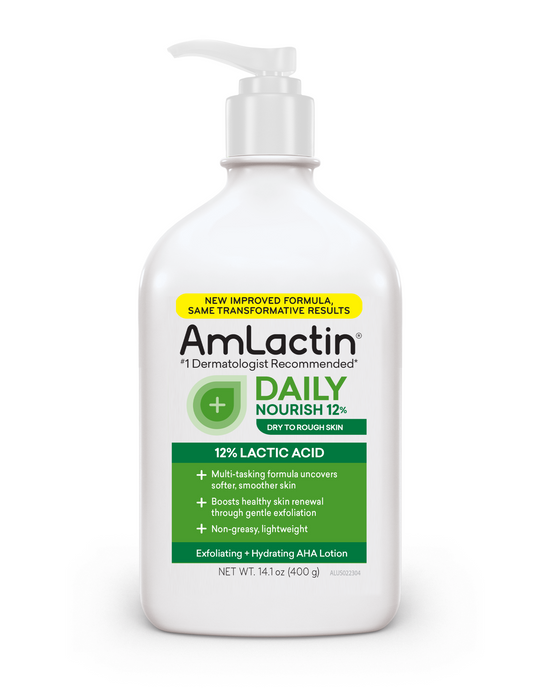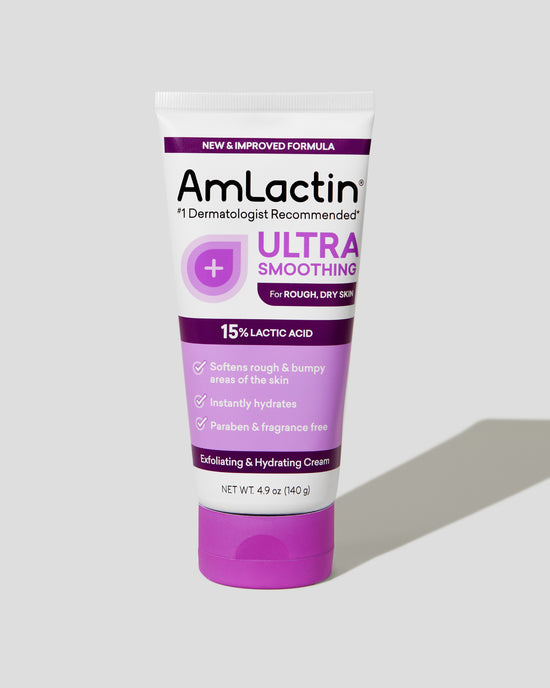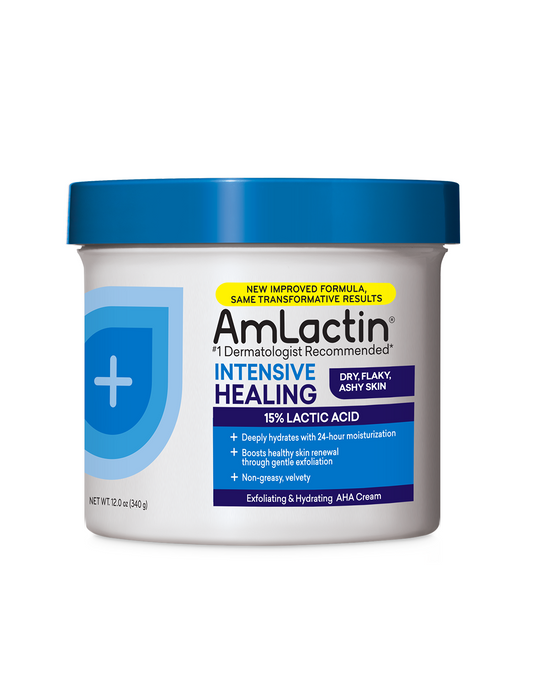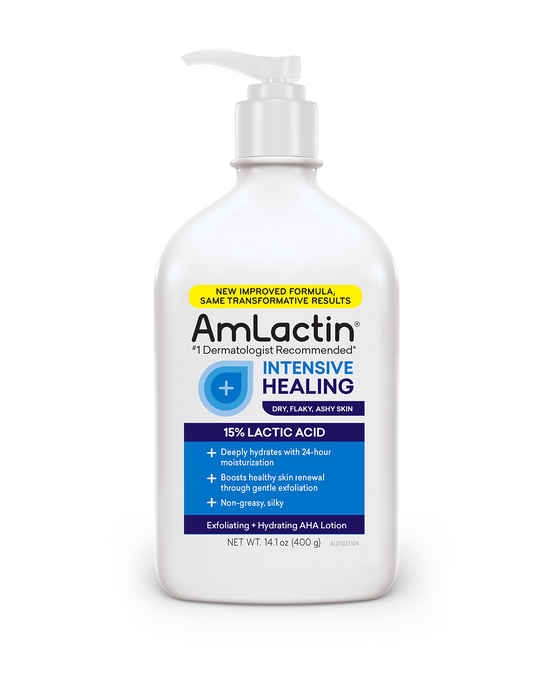When seasons change, some of the factors that affect your skin health change as well. But don’t worry, we have tips to better protect and hydrate your skin in each season, so you don’t end up with dry, itchy skin or body acne breakouts.
Adapt Your Full-Body Skin Care Routine for Each Season
Every season you want your skin to be hydrated, and one way to help is to drink fluids and eat hydrating foods. Look for foods high in antioxidants (such as leafy greens, berries, bell peppers, and tomatoes) and omega-3 fatty acids (such as avocados, walnuts, chia and flax seeds, wild salmon and other fatty fish). These foods help keep skin cells healthy by protecting your body’s cells from environmental damage and promoting healthy cell production.
Hydrating foods like watermelon, cucumber, tomatoes, sweet potatoes, and carrots also have nutrients like beta carotene, vitamin C, or vitamin A that help the skin. In contrast, eating highly processed or sugary foods can dry and irritate your skin, making it more susceptible to damage.
Winter Skin Care Tips
Whether you like to stay indoors or outside during winter, you know it can be a struggle to keep your skin hydrated. Cold weather and lack of humidity—in low temps outside and dry heat inside— make it harder for skin to retain moisture, especially if you’re using the wrong skin care products for the season.
Look for creams or more quality lotions that penetrate below the skin’s surface. These types of products are called “humectants” because they help lock in moisture, helping prevent dry, flaky, or ashy skin. To help with skin turnover, opt for skin care products that gently exfoliate, shedding old skin and opening up pores, leaving you with smoother, shinier skin. AmLactin skin creams and lotions contain lactic acid, which is a gentle alpha-hydroxy acid (AHA) and humectant that exfoliates and moisturizes at the same time.
When outdoors, protect your skin from the cold and wind, which can irritate skin and over time leave your skin red, raw, and itchy. When you come in from the cold, do not be tempted by a hot shower. Hot water can strip the natural oils from your skin, which then makes it harder for skin to retain moisture resulting in dry, itchy skin. Use warm (or cool) water instead and after bathing or showering, apply a daily moisturizing lotion or our Ultra Smoothing Cream with 15% lactic acid for smoother, softer skin.
Summer Skin Care Tips
With increased heat and activity, it’s important to understand how to take care of your body’s skin in summer. You can start by switching back to a lighter daily moisturizing lotion. If you are prone to acne breakouts, exercise regularly, or spend a lot of time in the heat, look for lotions and other skin care products that are “non-comedogenic.” These products are oil-free and formulated so they do not clog skin pores.
Wear loose-fitting clothes and be sure to change into dry clothes after swimming or after sweating. Staying in tight, sweaty workout clothes or a wet swimsuit can lead to infected hair follicles (folliculitis), yeast infections, rashes, acne breakouts, and other skin irritations. It’s worth the extra effort to dry off and change.
If you swim, wash your hair and your body as soon as you can after getting out of the pool to limit the drying effect chlorine and other pool chemicals can have on the skin. Moisturize after rinsing or showering and exfoliate less if you’re in a chlorinated pool often. If you typically use our Daily Nourish Lotion with 12% Lactic Acid, you may want to switch to AmLactin Daily Nourish Lotion with 5% Lactic Acid during your swim season.
Another cause of dry skin during summer could be coming from inside your home—your air conditioning. While most people understand that inside heat can be drying, they don’t often realize air conditioning can be too. You have two solutions you can: (1) Raise your thermostat—If you normally set the cooling system at 65 degrees, set it at 68 or 70. (2) Use a cool mist humidifier in the bedroom and rooms where you spend most of your time.
Spring/Fall Skin Care Tips
We’ve coupled our full-body skin care tips for spring and fall because these seasons have similar characteristics. In spring the weather switches from cold to warm or even hot, and in fall the weather varies from hot to cold. And both seasons are prime times for seasonal allergies as well as for lawn care and gardening, which can affect the skin.
In spring, you’re likely to start off reviving dry skin, so the exfoliating and hydrating properties of lactic acid make our Daily Nourish lotion (listed above) a good choice, or if you need intensive healing you may want to start spring with our 15% lactic acid lotion. As the temperature warms, you’ll want to switch from thicker creams or intensive healing lotions to lighter daily lotions. Then, toward the end of fall, you’ll be switching back as temps get colder.
Gardening in spring means weeding and prepping your gardens, planting annuals, trimming shrubs, and starting to mow the lawn again. In fall, you’re cleaning out your gardens, planting new bulbs, and getting your gardens, shrubs, and lawns ready for winter. Regardless of season, you want to cover up as much as possible outdoors while you’re brushing up against weeds, shrubs, and invasive plants. Dermatologists recommend wearing pants, gloves, long sleeves, and closed shoes or sneakers. Any exposed skin means opening yourself up to irritation, rashes, bug bites, scrapes, and potential skin reactions to the dreaded poison oak and poison ivy.
Another tip for spending time outdoors, especially if you have sensitive skin, is to use a daily moisturizer. Not only does this help hydrate your skin, but it also creates a thin barrier between your skin and potential irritants.
Use Sunscreen Year-Round
You may be wondering why we haven’t mentioned sunscreen yet. That’s because protecting your skin from the sun’s harmful ultraviolet rays is important to do in every season. While the sun seems less strong in the winter, you still need to apply sunscreen on any exposed skin, even on cloudy days. Anytime you’re on the snow or in or on water, the sun can reflect off the surface and cause sunburn. If you’re in the mountains, the UV rays can be even more intense than at sea level so be even more careful.
Also, if you use skin products that contain lactic acid or other alpha hydroxy acids, these ingredients can make your skin more sensitive to the sun. This means it’s even more important to wear sunscreen or protective clothing when you’re outdoors.
To be safe, always check the labels of your skin care products and medicines for warnings about sun sensitivity.







